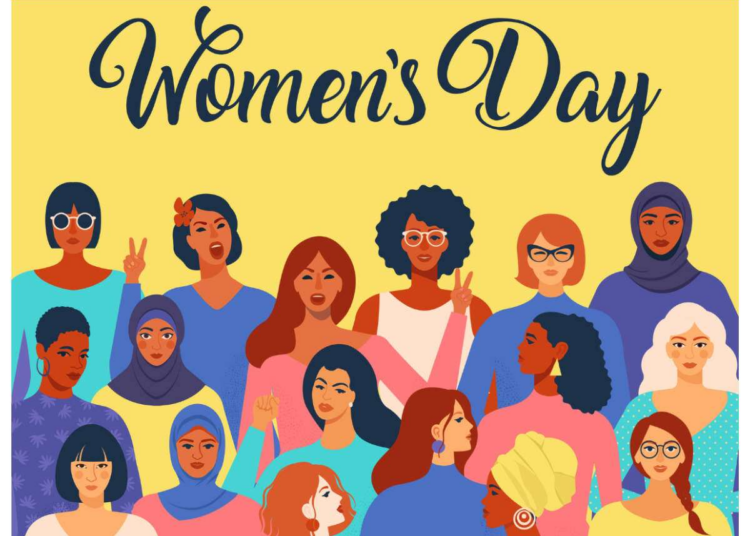Nigeria joins the global community to celebrate International Women’s Day (IWD) today with the theme, “For All Women and Girls: Rights. Equality. Empowerment.”
International Women’s Day is a global recognition and celebration of the accomplishments and resilience of women and also marks a call to action for accelerating women’s equality.
The 2025 theme calls for action that can unlock equal rights, power and opportunities for all.
The decision for IWD was agreed upon at Copenhagen in Denmark in 1911 but March 8 date has its roots in Russian history.
On February 23, 1913, Russian women protested against World War I under the Julian calendar (which corresponded to March 8 in the Gregorian calendar used elsewhere). This became a global benchmark for Women’s Day rallies.
Though IWD has been around for over a hundred years, so have many of the issues still impacting women’s advancement.
This paper recognises that it’s 30 years since the adoption of the Beijing Declaration and Platform for Action (BPfA) where the United Nations (UN) member states put forth several other agendas and resolutions that highlight the role that women play in society and the importance of gender equality for a better and more inclusive world, including the 2030 Agenda for Sustainable Development.
Unfortunately, despite the continued recognition of the importance of fully including women and girls in society and decision-making, the world is still falling short on its promise to this vulnerable group.
The 2030 Agenda and its Goal on Gender Equality (SDG 5), for instance, highlight several of the key areas of concern previously identified in the Beijing Declaration, which was adopted 20 years prior.
However, even with the recommitment of member states to these values, only 15.4 per cent of the nine targets of SDG 5 are on track to meet its expectations, including SDG 5.5 which advocates for women’s full and effective participation at all levels of decision-making in political, economic and public life.
According to the commitments made in 1995, ensuring women’s equal participation in decision-making was seen as essential for achieving societal balance, strengthening democracy, and ensuring its effective functioning.
Sadly, three decades later, only 26.9 per cent of Members of Parliament globally are women and less than 28 per cent of leadership positions in the workplace belong to this group.
According to International IDEA’s Global State of Democracy Indices, despite slow progress across all regions, the world has not seen a striking improvement in women’s political equality since 1995.
Indices show that women’s gender equality remains in the mid-range globally (0.57*), with only Europe (0.74*) achieving high levels of gender equality in the past 30 years. The largest impediment to this measure is seen in Western Asia/Middle East (0.34*), with many countries restricting women’s participation and representation in several aspects of society.
The indices is worse in Nigeria where women continue to face numerous challenges, including gender inequality, endemic gender-based violence, persistent societal discrimination, poverty, and a lack of access to education, mostly especially women in the northern region of the country who are being denied of their right to education.
Women are still being told where their place is as evidenced by the recent saga between Senator Natasha Akpoti-Uduaghan and the Senate President, Godswil Akpabio.
Without a doubt, Nigerian women constitute a larger proportion of poor people in the country, going by International Monetary Fund (IMF) statistics of 60 per cent.
This has hampered gender equality in political representation because poverty denies women the financial and human resources required for leadership positions.
Women’s representation in Nigerian politics has been on a downward slide since 2011, and the 2023 elections confirmed the expectations of poor outcomes for women.
The number of women in Nigeria’s National Assembly has fallen by 19 per cent compared to the last assembly, with women now occupying 3 per cent of seats in the Senate and 4 per cent in the House of Representatives.
What’s worse, Nigerian women and children have become victims of ritualists who kill and cannibalize them for purposes best known to them.
The Nigeria Watch and WANEP’s National Early Warning in 2021 recorded 185 ritual-related deaths across the country, including 43 females and 30 children.
However, great improvements are being made across the world; with the evolvement of female astronauts and prime ministers.
Though a challenge still in many countries; girls are largely welcomed into university, women can work while balancing the needs of a family, and women can have real choices.
And so, each year, the world inspires women and celebrates their achievements, with official holiday in many countries, including Afghanistan, Armenia, Azerbaijan, Belarus, Burkina Faso, Cambodia, China (for women only), Cuba, Georgia, Guinea-Bissau, Eritrea, Kazakhstan, Kyrgyzstan, Laos, Madagascar (for women only), Moldova, Mongolia, Montenegro, Nepal (for women only), Russia, Tajikistan, Turkmenistan, Uganda, Ukraine, Uzbekistan, Vietnam, and Zambia.
The tradition sees men honouring their mothers, wives, girlfriends, colleagues, etc with flowers and small gifts.
In some countries, IWD has the equivalent status of Mother’s Day where children give small presents to their mothers and grandmothers.
We acknowledge that a collective action and shared ownership for driving gender parity is what makes International Women’s Day impactful.
In our considered opinion, more political will is needed for policies to be created for effective change.
More importantly, democracy needs to be at the core of the discussions at the UN, as it was 30 years ago, otherwise, the Declaration and the hope for gender equality will become an unfulfilled dream for many more years to come.
Gloria Steinem, world-renowned feminist, journalist and activist reportedly once explained, “The story of women’s struggle for equality belongs to no single feminist nor to any one organisation but to the collective efforts of all who care about human rights.”





